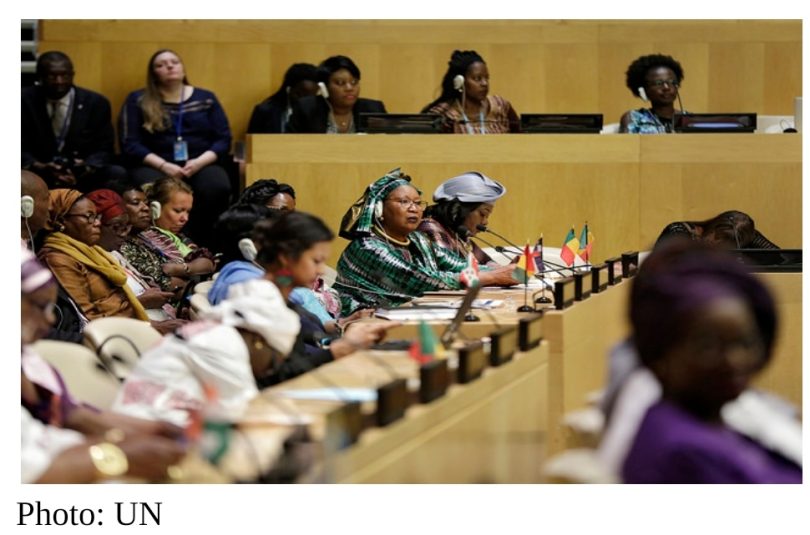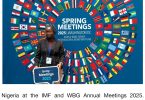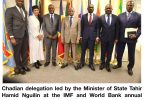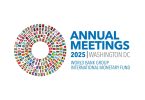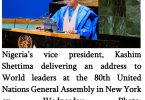Equal of women in government is critical to attaining democracy, sustainable development, and egalitarian society. While progress toward redressing women’s marginalization in leadership roles has been made, it has been gradual and unequal since 1995. Gender disparities in political leadership exist throughout local governments, national legislatures, and executive institutions of power, despite and in defiance of a slew of global, regional, and national laws that provide women equal political participation and representation as citizens. Women suffer major differences inside political parties, which act as barriers for women’s political entry and competition.
Women have long been underrepresented in politics. Africa and the rest of the globe are still a long way from having 50% female representation in politics – at all levels of government. Women’s representation in parliament in Africa was 24% in 2021. Some of the main causes of these low statistics include a lack of political will, limited electoral systems, and firmly ingrained sexism. At the same time, several tools, laws, and policies exist in Africa that commit to the equitable and effective involvement of women in politics.
Gains achieved over decades for women to be treated equally, and the ongoing optimism that women in decision-making will ultimately approach, if not exceed, the 50% level. In Africa, there are outliers such as Rwanda, which has over 60% of women in parliament, and Nigeria, which has just 6% of women in parliament. According to the WPP Barometer 2021, we still have a long way to go, with only 24% of parliamentarians being women. While mindsets are changing, frameworks are not evolving at the same rate. In several African nations, political instability has also hindered women from engaging in politics. The historical disadvantages of women’s political involvement must be actively considered by electoral systems.
Most African nations now have at least one gender quota in place, including 13 countries that have officially designated seats for women in parliament rather than mandated candidate or political party quotas. These protected seats enable nations such as Rwanda (61.25%), South Africa (46.35%), Senegal (41.82%), and Ethiopia (38.76%) to have a high number of female parliamentarians and incorporate more women and varied viewpoints in legislative decision-making. These few successes in women’s political representation must be celebrated on International Women’s Day and beyond, while the low representation of women in politics, alarming levels of Election Violence Against Women (EVAW), and other red flags on women’s political participation require immediate solutions. Young women are particularly vulnerable to this type of assault.
As part of its attempts to stem the tide, the African Union plans to undertake a campaign to galvanize more action in support of Gender Equality and Women’s Empowerment pledges. The “What African Women Want” campaign was launched on International Women’s Day, March 8, 2022, to popularize and advocate for the rapid and full implementation of the African Union Strategy for Gender Equality and Women’s Empowerment (2018-2028), as well as the implementation of programs earmarked as part of the African Women’s Decade of Women’s Financial and Economic Inclusion (2020-2030), at the national, regional, continental, and global levels.
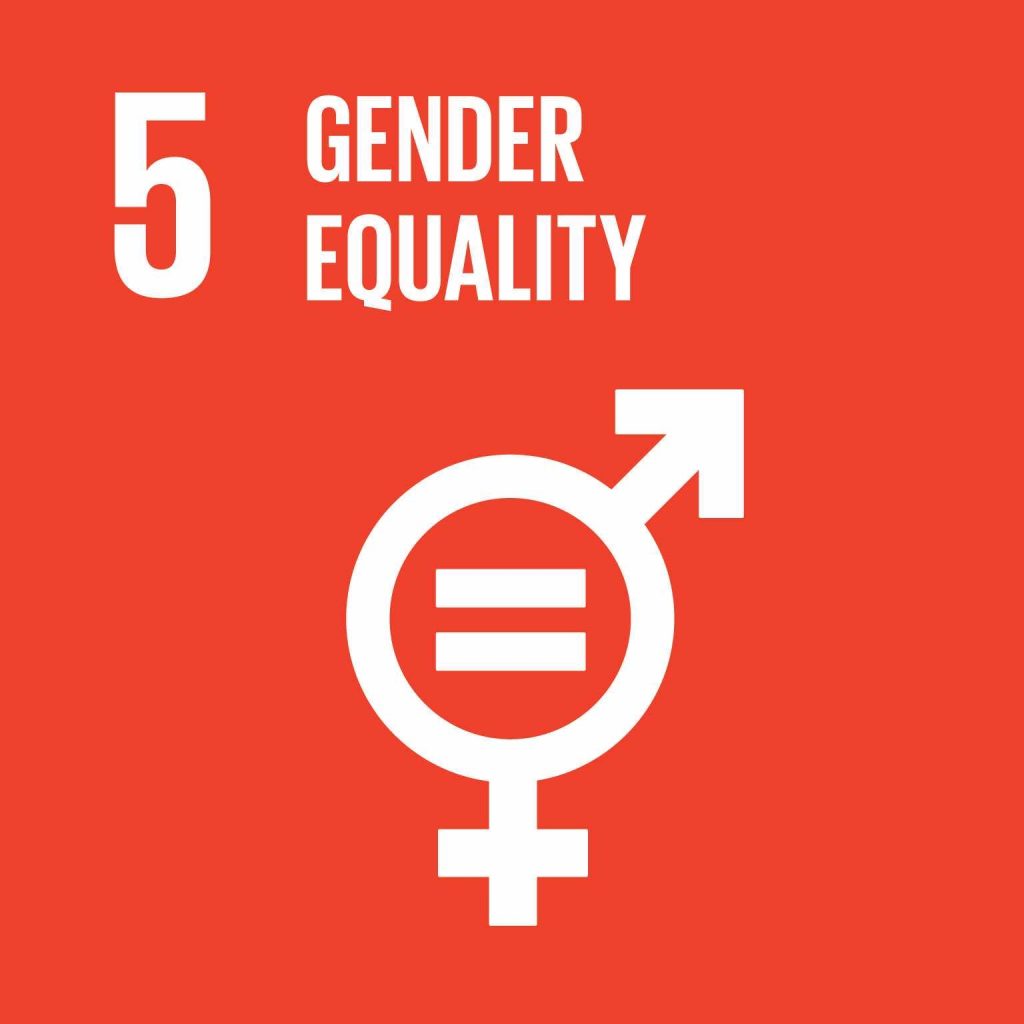
African countries must go beyond numbers to address the core reasons for women’s exclusion from politics. The strongly established patriarchy that exists throughout Africa frequently displays itself in violence against women in politics and other areas of life. There is a need to dismantle patriarchy by raising red flags of political concern among women. Similarly, through sub-regional procedures and institutions, governments must be able to hold each other accountable for these red signals. Substantive female leadership is required to push for gender-equal policies and even to improve collaboration across party and ethnic lines. Such gender policies aid in the challenge of discriminatory legislation, the expansion of responsiveness to social concerns, and the removal of legal impediments to women’s access to services and economic possibilities.
Africa has advanced normative frameworks in place to ensure gender equality in social, economic, and political matters. Many nations are witnessing improvement in terms of women’s rights and place in society as a result of years of agitation and legal reforms. However, the continent continues to lag behind in achieving the goals set out in various continental legal frameworks, such as the African Charter on the Rights of the Woman in Africa and the African Charter on the Rights and Welfare of the Child, resulting in the rights of women and girls not being upheld and their full contribution to society being hampered, among other things, by underlying structural inequalities that perpetuate harmful cultural practices, negative social norms, and lacunae.
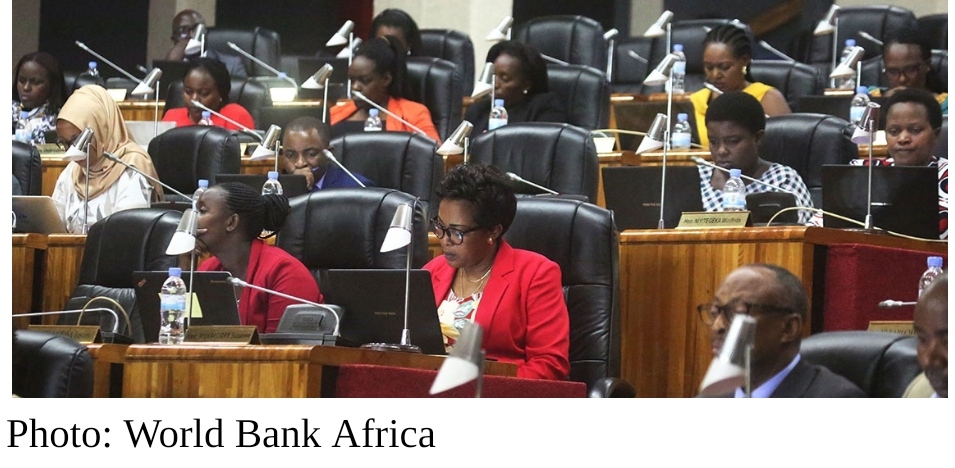
The restructuring of formal, political institutions through constitutional amendments, legislative reforms, and targeted affirmative action programs, including but not limited to legislated sex quotas, reservations, and party mandates when accompanied with proper safeguards, must be the starting point. Political parties must be prioritized for change since they are critical to women’s political participation and competitiveness. Their supply of a level playing field, or lack thereof, has a direct influence on women’s access to appointed and elected posts in government.
Second, capacity-building interventions for women political leaders inside established women’s parliamentary caucuses provide women leaders with the skills and information they need to be effective and successful. Meaningful (substantive) representation of women leaders, or the impression of such representation, strengthens role-modeling effects and fulfils voters’ desire for performance accountability, increasing the public’s positive attitude and support for women’s political leadership. Key actors—gatekeepers and influencers, leadership models and networks, and understanding strategic influence and successful forms of social action for change—should be the focus of training.
Third, initiatives that promote social mobilization and collective action help to modify the nature of the state and provide more room for women’s inclusion. While these developments may be progressive, they may also further a conservative agenda, such as religious and ethnic civil society mobilizations. Policy entrepreneurs and implementers must be vigilant in ensuring that, when mobilized, these coalitions and movements are not hijacked and used to promote a variety of agendas that mask hidden anti-gender propositions, such as traditional notions of women’s subjecthood that limit their political leadership opportunities.
Finally, establishing a gender-inclusive and favorable culture is an essential variable in the conflict between good developments in women’s leadership engagement and ongoing sexist beliefs. Gender norms and behaviors have influenced women’s experiences running for and holding political office. Norms impact the leadership experiences of women who are elected, including how they are regarded and treated by the public and by other political players. Inequalities caused by social discrimination are mirrored in informal rules, which necessitate more profound structural reconfiguration. Interventions aimed at changing these norms can act as change agents. Exposure to female leadership has the potential to change social norms in the long run. While norms and social attitudes change in little steps over time, interventions aimed at conventional and regressive behaviors are more effective.
The link between political and social transformation is complicated. Political reform is meaningless unless there is a societal shift in how men regard women, and political change may be impossible to achieve without social change. As a result, securing social change may ensure political transformation, including equal women’s political representation in formal state entities.


